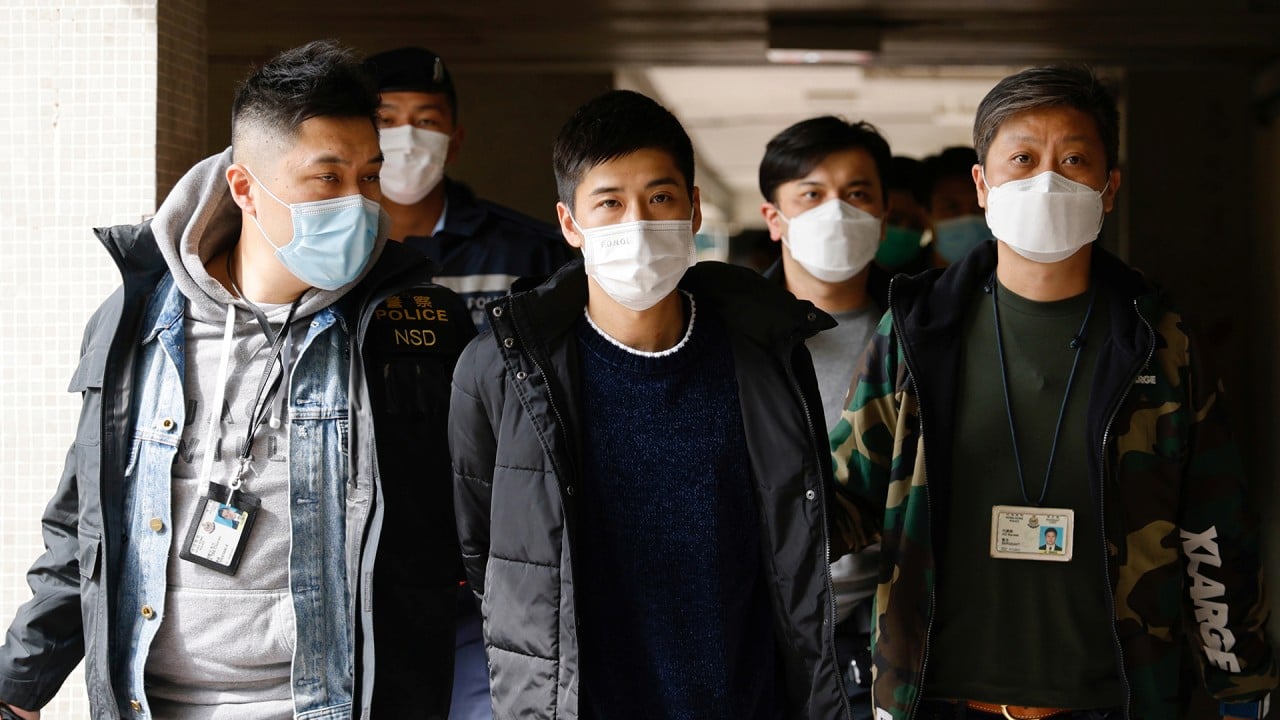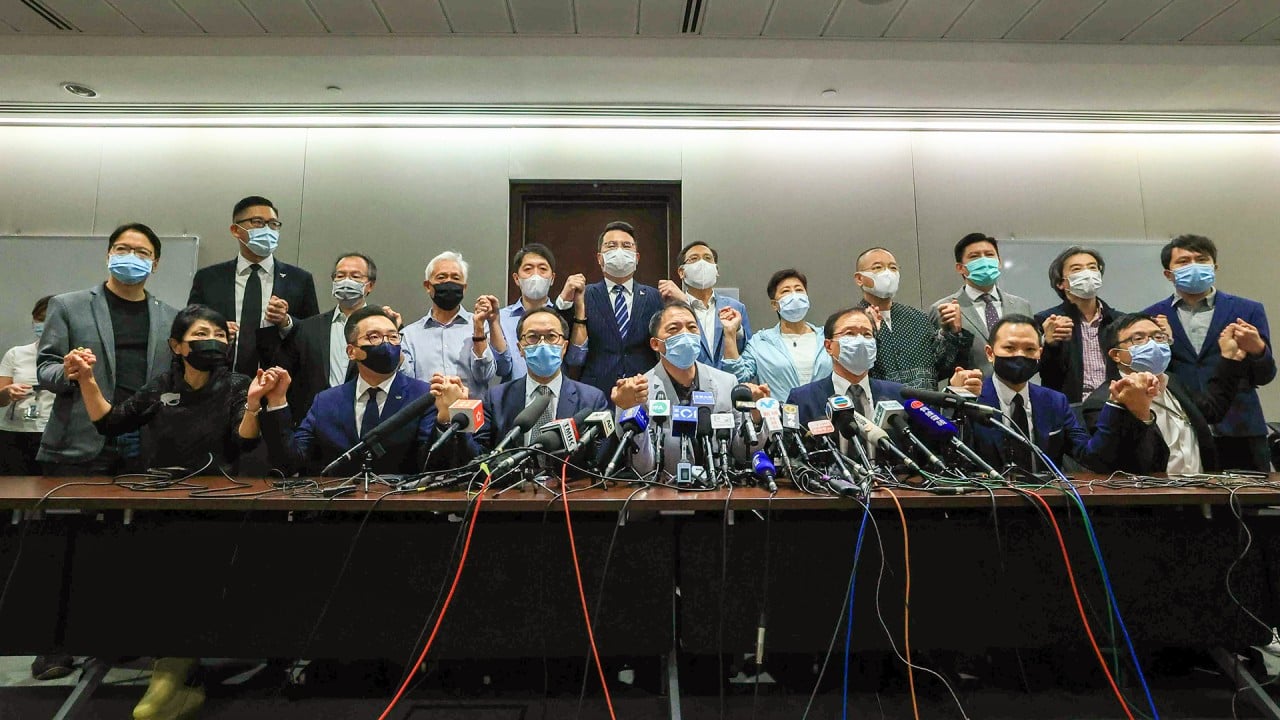
Mass arrests: the sinister aspect of democrats’ ‘35-plus’ primaries strategy for the Legco elections
- The powers given to legislators under the Basic Law must be exercised in good faith. If the whole essence of their endeavours is to wreak havoc, and bring down the government, then they are using the Basic Law as a disguise for subversive activities
At the core of the 10 steps was that the legislators with control of Legco would not be there to discharge their constitutional functions in the best interests of the community. Quite the reverse. The aim was to use their powers as legislators to create chaos.

03:04
Mass arrests of Hong Kong opposition lawmakers, activists under national security law
The steps envisaged included exercising their powers under Article 73(2) of the Basic Law to refuse any allocation of funds to the government and vote down the annual budget, forcing the chief executive to dissolve Legco under Article 50 of the Basic Law.
New elections would then be called. The new Legco, with the plotters still in control, would once more veto the budget, compelling the chief executive to resign under Article 52(3) of the Basic Law.
This, according to the scheme, would inevitably lead to an acute crisis causing Beijing to intervene, in turn resulting in “strong” protests in the streets with bloody repression to follow. Western countries would then respond with political and economic sanctions on China.
Why both sides get Benny Tai’s case wrong
Among the demands was “double universal suffrage”, which required amendment of Annexes I and II of the Basic Law, which needed action by the National People’s Congress. This was not within the remit of the local government.
That, in essence, led to the arrests. Nothing happened, because the Legco elections were postponed.
In an interview on RTHK recently, the Democratic Party chairman justified their actions by saying: “The Basic Law basically says if you are a legislative councillor, you can vote down the budget.”
This was a disingenuous reference to Articles 50, 51, 52 and 73(2) of the Basic Law, treating them as playthings for lawyers, picking out the black letters for argument in court. Other spokespeople have made the same point.
Beijing should ask itself why BN(O) passport holders want to leave
The Basic Law is not a black-letter contract entered into by parties with equal bargaining power, each seeking some advantage over the other from the text of the document they signed.
It is a living constitutional instrument and, under the common law, must be construed in a broad and liberal manner according to its true intent and spirit.
The preamble to the Basic Law states its purpose to be, among other things, to maintain “the prosperity and stability of Hong Kong”.

04:08
Hong Kong opposition lawmakers to resign en masse over Legislative Council disqualifications
Legco is one of the prime organs of government. The powers given to legislators under Articles 73(2), 50, 51 and 52(3) of the Basic Law are to be exercised in good faith, in the best interests of the community, maintaining prosperity and stability in the special administrative region.
A councillor may be muddle-headed, ignorant and unreasonable and still be carrying out his constitutional duty as a lawmaker. But when the whole essence of his endeavours is to wreak havoc and bring down the government, he is no longer performing constitutional duties under the Basic Law. He is using the Basic Law as a disguise for subversive activities.
It is wholly unnecessary to write into the Basic Law: “Every legislator must act in good faith” any more than it is necessary to prescribe: “A legislator must never take bribes”.
The police investigations are at an early stage. Much remains to be revealed. For instance, what, precisely, was put to the registered voters at the primaries to induce them to come out? What was said to them?
The secretary for security has described the whole operation as “a vicious plot”. The degree of culpability of each participant may vary. But looking at the matter in the round, the secretary’s description may be no exaggeration.
Henry Litton is a retired Court of Final Appeal judge and author of “Is the Hong Kong Judiciary Sleepwalking to 2047?”

